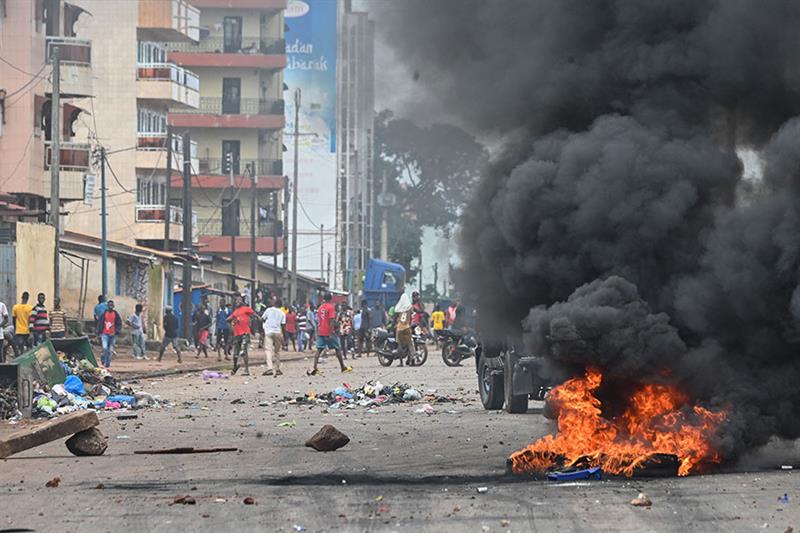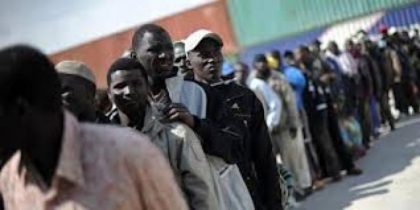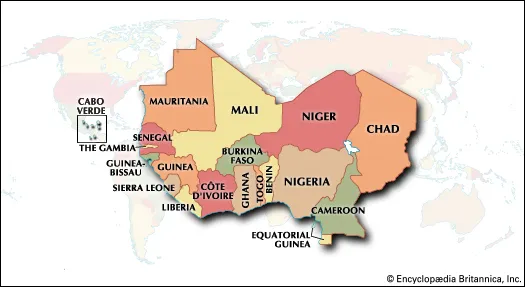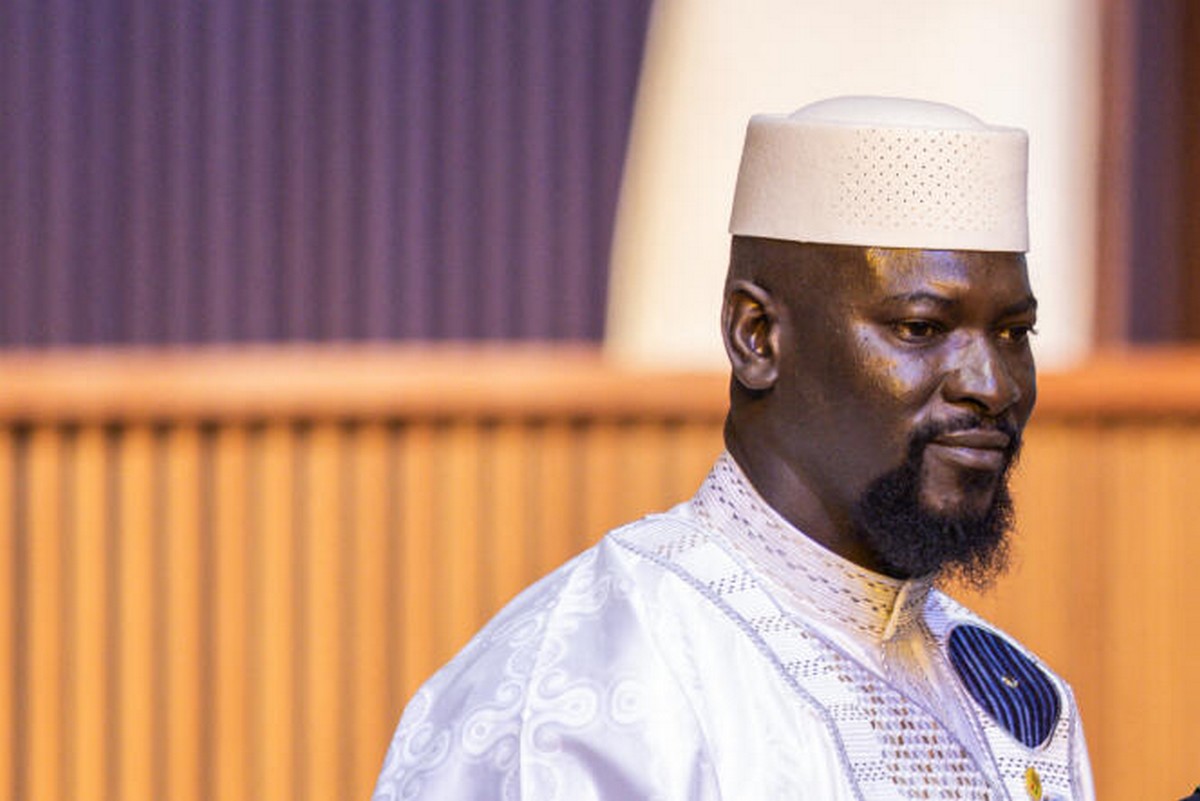Mounting frustrations with Guinea’s interim military government have driven more people to join anti-government protests in the capital, Conakry, days after several private media and online outlets in the West African country launched a one-day boycott of news in protest at press and internet restrictions by the authorities.
Seven people were killed on May 11 in the West African nation as anti-government protests and violent clashes with security forces are gaining momentum over frustrations with military leaders overseeing a promised return to democratic rule.
Conakry has regularly seen smoke billowing from burning tires and other debris, since fuel price hikes triggered the first major protest against the military government last June. At least 32 people were injured in unrest this month during the latest clampdown by the army, which was deployed to quell planned demonstrations in the capital last week.
Anger mounts against military governments not only in Guinea but also in Burkina Faso and Mali, all of whom seized power in a series of coups in the West and Central Africa region since 2020.
Meanwhile, several private media and online outlets in the West African nation launched a one-day boycott of news in protest against the decision by the military to shut down two radio stations, limit access to popular websites and social media, while threatening to close any media that “undermines national unity.”
While the military-led government has denied any crackdown against the two radio stations or blocking of the internet, civilians are now calling upon the government to respect freedom of the press as enshrined in the constitution. As Tee Ngugi, a Nairobi-based political commentator, argued in his recent commentary, “to break this cycle (of coups and violence) in Africa will require a cultural shift in our governance, a more assertive African Union divested of ownership by presidents, an international community that will demand the same standard of accountability from African leaders as they demand from governments elsewhere, renewed African intellectual activism divested of hackneyed demagoguery.”



